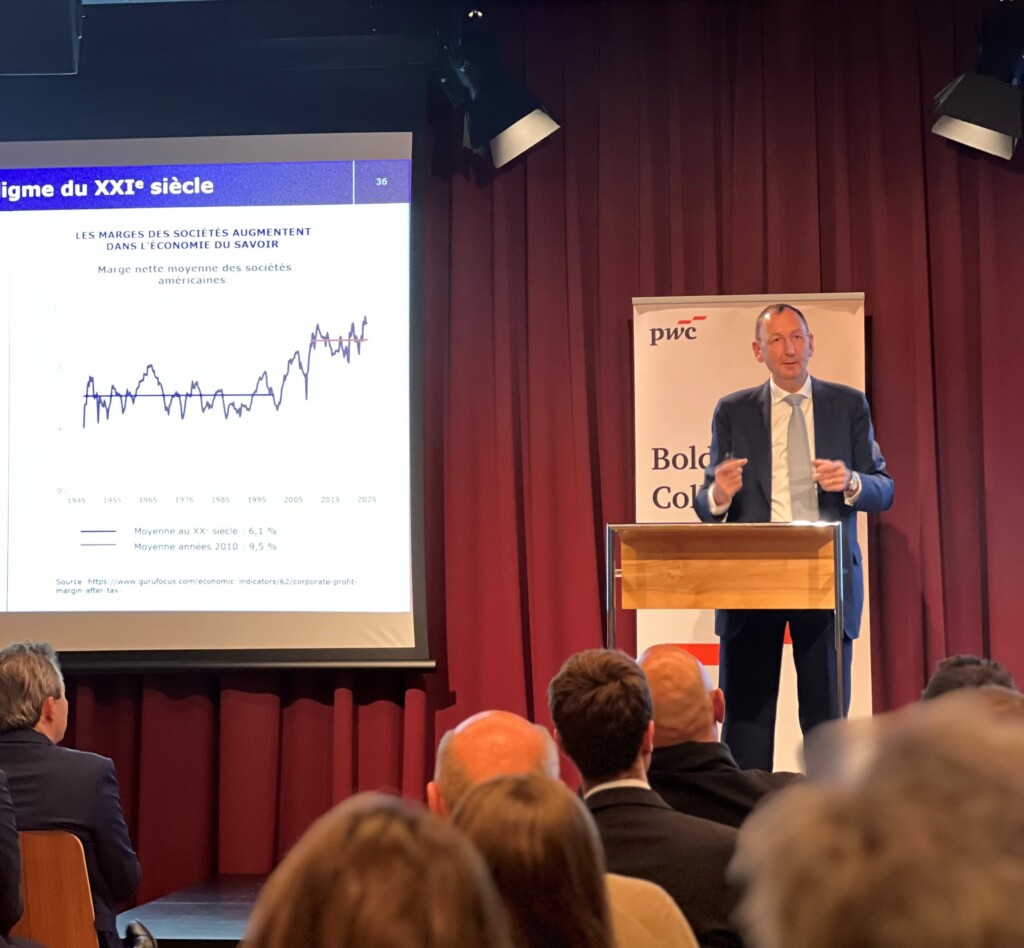
Michel Dominicé, Senior Partner
Article published in Le Temps, December 16
Income Properties: A Traditional Investment
Income generating properties have long been a favourite investment for wealthy families in Switzerland, offering relatively low risk, inflation protection, direct control over assets, and, until recently, acceptable returns compared to declining bond yields. However, many property owners are now realizing that maintaining sustainable income from their real estate is becoming increasingly difficult, as maintenance costs and taxes consume most rental income. Additionally, direct property ownership brings considerable work and stress, often requiring expertise that many investors lack.
The Decline in Returns
Over the past 30 years, returns on Swiss real estate have steadily declined due to global trends tied to the rise of the knowledge economy. This shift to an intangible, skills-based economy has reduced long-term interest rates and property returns across all categories. Rising maintenance costs, driven by regulatory demands and energy transition requirements, further diminish the appeal of real estate investments.
Income generating properties have long been a favorite investment for wealthy families in Switzerland, offering relatively low risk, inflation protection, direct control over assets, and, until recently, acceptable returns compared to declining bond yields
Increasing Tax Burden
Taxation also plays a significant role in diminishing real estate’s attractiveness. Declining capital returns intensify wealth tax burdens, calculated at fixed rates, while properties, by nature immobile, are frequent targets for additional taxes. Compared to securities, real estate faces a range of specific taxes, including property taxes, transfer duties, and capital gains taxes—none of which apply to mobile assets in Switzerland.
Read also: Towards a Return of Negative Interest Rates in Switzerland |

A Hostile Political Climate
Switzerland’s steady population growth, fuelled by talented professionals and wealthy individuals relocating to the country, has driven up real estate prices and exacerbated housing shortages. This has created political tension, with calls for stricter rent controls, increased public housing, and heavier real estate taxes. While Swiss real estate remains fundamentally attractive, government intervention complicates the investment landscape.
The Opportunity of Real Estate Funds
Faced with the numerous challenges outlined above, an increasing number of families owning income-generating properties are finding real estate funds to be an attractive alternative. Real estate funds offer several advantages. First, they provide flexibility, as investments can be made on the stock exchange like any other stock, allowing investors to contribute any amount, increase or decrease their holdings at any time. This flexibility is particularly beneficial during inheritances, which are simplified with shares in real estate funds, unlike the complications often arising with direct property ownership.
Additionally, the management of a real estate fund is conducted on a large scale by professionals who are better equipped to handle the technical, legal, and commercial aspects of property portfolios. Finally, investors are relieved of the burdens of property ownership, receiving profit distributions from the fund. These distributions are relatively stable, thanks to the diversification effect achieved through a large number of properties, where those under renovation are supported by the rest of the portfolio.
Real estate funds offer several advantages. First, they provide flexibility, as investments can be made on the stock exchange like any other stock, allowing investors to contribute any amount, increase or decrease their holdings at any time.
Attractive and Little-Known Tax Benefits
Real estate funds in Switzerland offer a little-known tax advantage. Under federal law, when a real estate fund owns its properties directly, the fund pays both income and wealth taxes on behalf of the investor. This has two key implications for the investor: first, the amount invested in the fund is not added to their taxable wealth, and second, the fund’s distributions are not taxable.
It’s worth noting that the tax rates applied to the fund are hybrid. For income tax, the fund pays rates equivalent to those of a corporation—significantly lower than those for an individual—while wealth tax is levied at a level comparable to that of an individual. In practice, however, properties held by the fund often benefit from modest, older valuations that are below their current market values.
A Transition Underway
More families are selling their income properties or exchanging them for real estate fund shares, which retain the benefits of property investment without the downsides. At Dominicé, we are actively supporting this evolution, helping families adapt their strategies to align with today’s challenges and opportunities.

